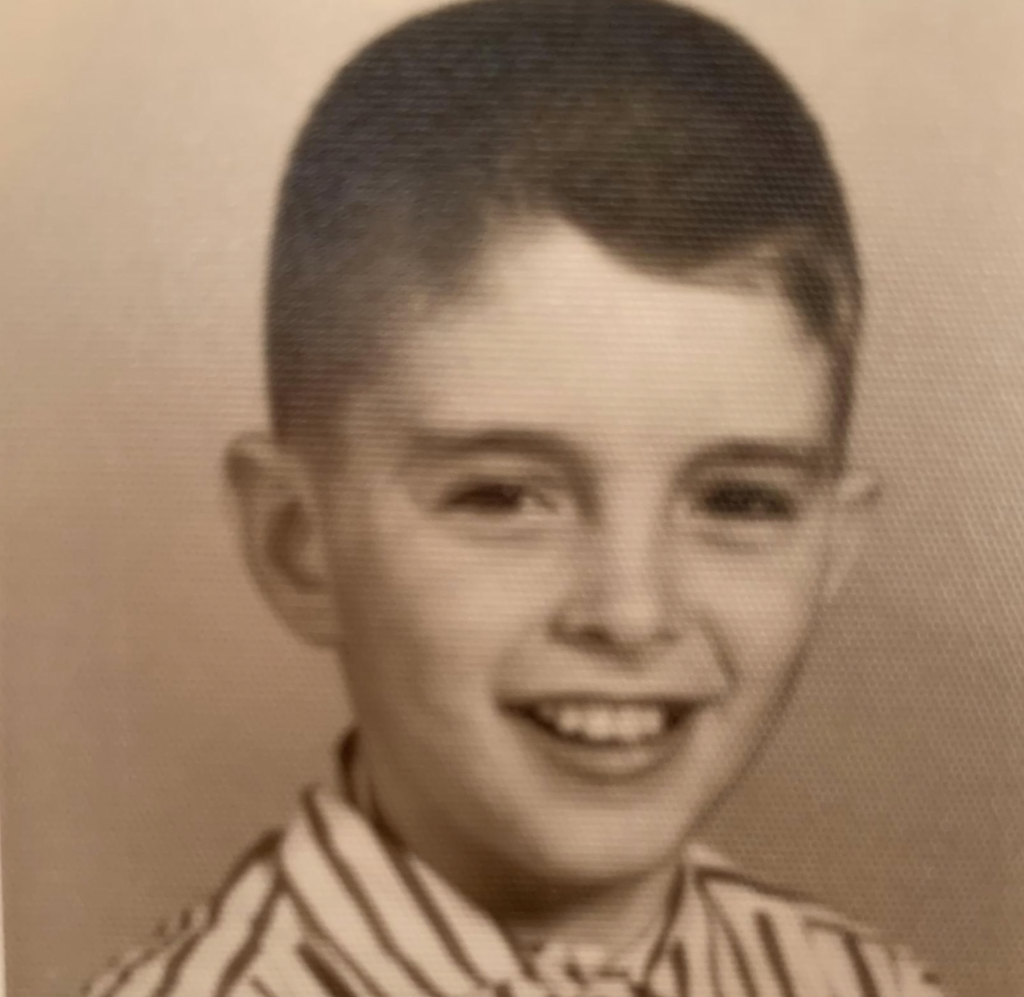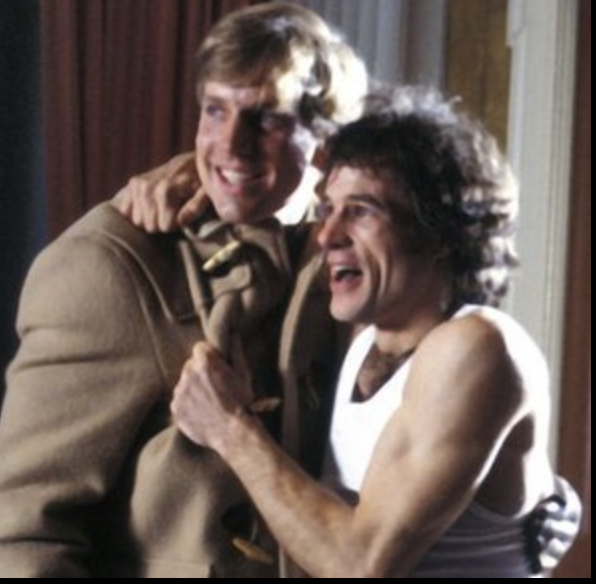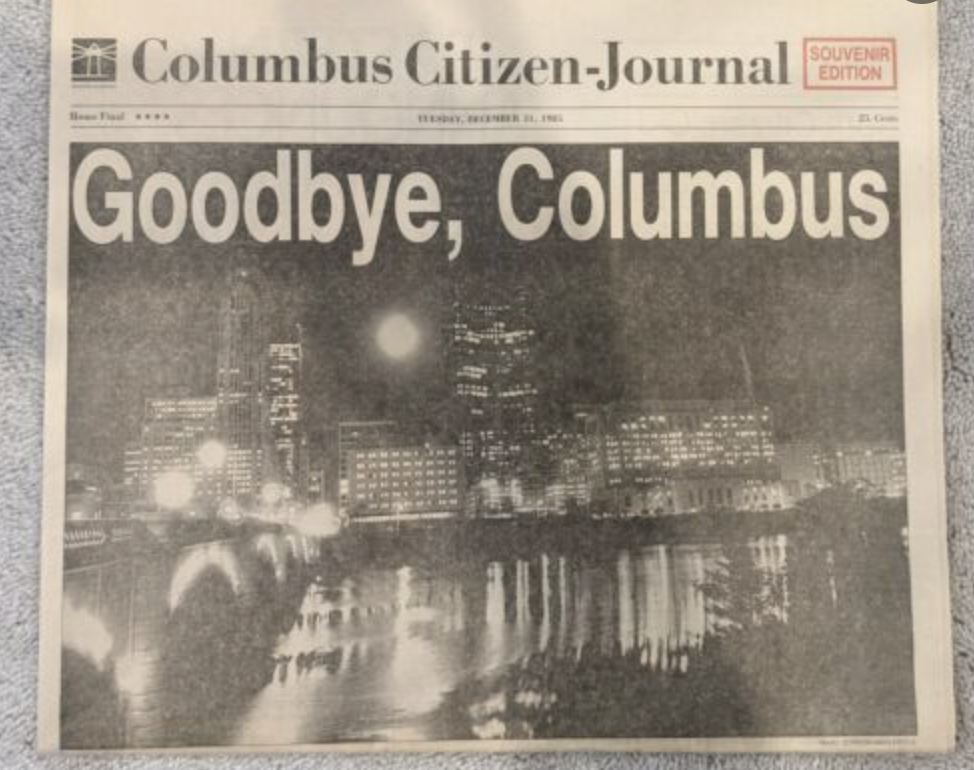I was 11 years old the first time I had the feeling.
I don’t remember much about the newspaper, other than to tell you it was a local weekly in Huber Heights, Ohio. I opened up the sports page, looked at the bottom of the broadsheet and saw my name and picture with a column about junior high school sports that I had written.
I had a 1961 crew cut and the shirt I was wearing had red and white stripes. I looked like someone out of a barbershop quartet.
But I was a newspaper man. Or maybe more accurately, a newspaper boy.

Although I never had a paper route.
I wish I could say it was the beginning of a lifelong romance with journalism, but after that one season in Ohio, it was 17 years before I wrote for a newspaper again. That was when the real romance began.
From the fall of 1978, when I returned to college and went to work on the school paper to January 2008, when I was one of the victims of massive job cuts in the newspaper industry, I was a journalist.
I worked for wonderful people and I worked for people I’m pretty sure will roast in hell. I worked for terrific journalists and I worked for others who had been promoted well past the level of their incompetence. I even worked for people who seemed eager to hasten the demise of America’s newspapers.
If I live to be 90 years old, and people ask me what I did, I will say proudly that I was a journalist. I didn’t work in the media; I worked in the newspaper business, and if 30 years from now I have to explain to people what newspapers were, I will do so proudly.
If I remember, of course. After all, I’ll be 102 years old.
I covered almost everything — sports, business, politics, entertainment. I even got to write a column three times a week for the best five years of my professional life. I wasn’t Bob Greene or Mike Royko, but I had a following.
I read Greene’s last book, “Late Edition: A Love Story,” about the four summers he spent at the old Columbus Citizen-Journal at the beginning of his own career, and the best compliment I could ever pay him is to say that he gets it. He understands exactly what it is — what it was — that made so many of us fall in love with deadline journalism.
He understands what we’re losing, too.
Said Greene:
“We were not in the ‘information business.’
“That is the phrase that newspaper executives often use today, to explain what they do. It is intended to be heard as a descriptive, even boastful phrase, but it can sound vaguely desperate. With the newspaper business in trouble, some publishers seem ever eager to proclaim to the public that they’re not in the newspaper business at all. They’re in the information business. Web sites, cable television channels, drive-time radio partnerships, e-mail editions, Internet entertainment offshoots … a newspaper, the implication seems to say, is only a part of it. It’s as if the publishers want the readers to translate that as “only a small part of it.”
The last boss I had in the newspaper business, the one who ended my employment, gave us a long speech on more than one occasion to tell us we were not in the newspaper business, we were in the information business.
The sad part of it is that he was a frightened little man who covered his fear with bluster and meanness. He was far too eager to write off newspapers, and he even said several times that he didn’t care about the print edition at all.
Sorry, but when I read the New York Times or USA Today on my iPhone, it just isn’t the same as holding a newspaper and seeing words in print. Probably the greatest non-sexual thrill I ever had in my life was when I walked the campus on Mondays during the year and a half I was editor in chief of my college paper and saw hundreds of people reading my paper and discussing it.
In one of my favorite guilty pleasure movies, “A Small Circle of Friends,” wannabe journalist Leo walks into the cafeteria at Harvard in 1967 and sees a roomful of students reading his article in the Crimson.

Same feeling.
I never reached the heights of a Bob Greene, but I got to be Bob Greene on the local level for five years and there is nothing like writing stories about people and knowing they meant something. Knowing that someone was paying me to use my judgment to choose subjects, research them and write them.
Being a journalist was wonderful, and seeing my picture with my column three times a week was as good a feeling as I ever had professionally.
It was almost as good as when I was 11.

